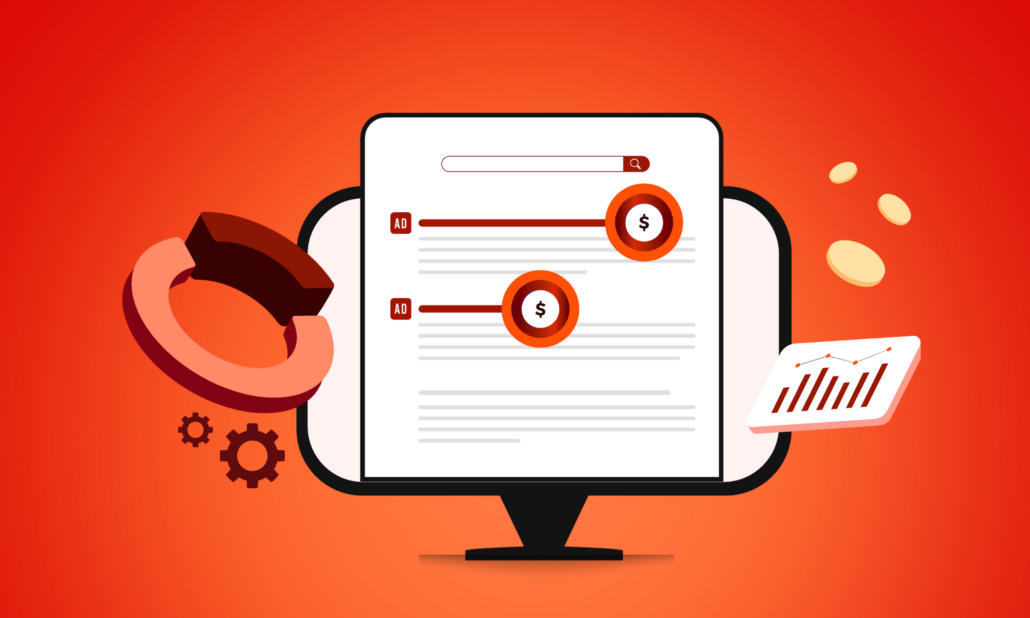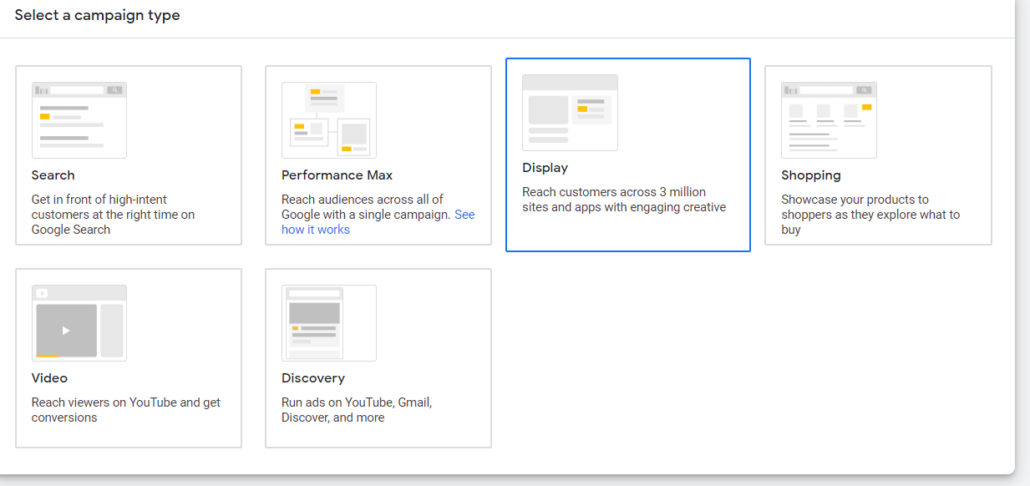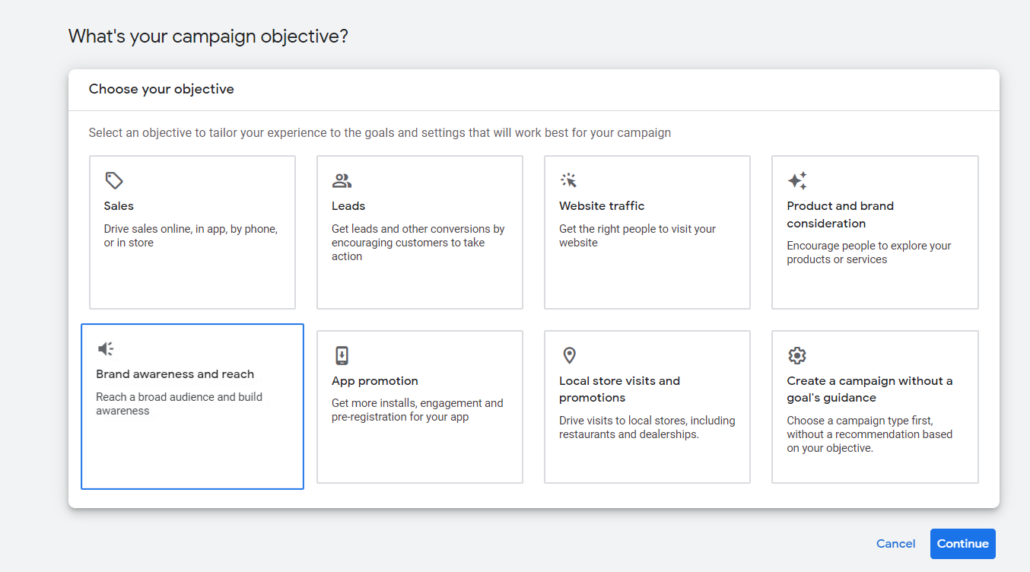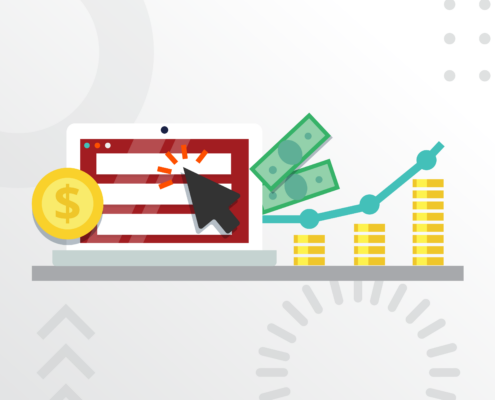

Google Ads, the world’s largest online advertising platform, is a powerful tool for businesses looking to reach a massive audience of potential customers.
With billions of daily searches on Google, advertising with Google Ads provides businesses with the opportunity to promote their products and services, generating leads and sales to potential buyers across their target market.
From small businesses to enterprise corporations, Google Ads has become a go-to marketing channel for companies looking to boost digital brand visibility and drive business growth.
In this blog, we’ll cover the following topics regarding Google Ads:
What Is Google Ads Used For?
Google Ads, formerly known as Google AdWords, is an online advertising platform developed by Google. It allows advertisers to create and display ads on Google’s search engine results pages (SERPs), Google’s partner websites, and YouTube.
The Google Ads platform offers a variety of ad formats, including text ads, display ads, video ads, and shopping ads, and it provides detailed targeting options to reach specific audiences based on demographics, interests, location, and device.
Using Google Ads is crucial for sales and marketing efforts because it allows businesses to target specific audiences and keywords, generate leads and sales cost-effectively, measure the effectiveness of their ads, increase brand awareness, and choose from a variety of ad formats. Leveraging these features empowers businesses to improve their online visibility, attract more potential customers, and hit their sales and marketing goals.
How Does Google Ads Work
Google Ads operates on a pay-per-click (PPC) model, which means that advertisers only pay when someone clicks on their ad. Advertisers bid on specific search terms that are relevant to their business, product, or service, and their ads are shown to users who search for those keywords or browse websites related to them.
When a user searches for a keyword that matches the business’s bid, Google’s algorithm selects the winning ad and displays it on the SERP or partner website. The ad’s rank on the search results page is determined by a combination of the bid amount and the ad’s quality score, which is based on factors such as the ad’s relevance to the user, how frequently users are converting on the landing page, and expected ad click-through rate.
If a user clicks on the ad, they are directed to the business’s website, and the business is charged for the click. The amount charged is based on the bid amount and the ad’s quality score.
Google Ads provides detailed analytics and reporting, allowing businesses to measure the effectiveness of their ads and make adjustments as needed. This helps to optimize ad campaigns and increase the chances of generating leads and sales.
Abstrakt’s B2B digital marketing experts are well-versed in using Google Ads to ensure you get the best leads for your pipeline. Talk to our inbound marketing specialists to learn how we can be your partner in lead generation.
Benefits of Advertising Online With Google Ads
Better Reach of Your Target Audience
Google is the world’s most popular search engine, with billions of searches conducted every day. Advertising with Google Ads allows businesses to reach a vast audience of potential customers who are actively searching for products or services like theirs.
More Targeted Lead Gen Efforts
Google Ads allows businesses to target specific audiences based on their demographics, interests, and behaviors. This targeting capability helps businesses to reach people who are most likely to be interested in their products or services, increasing the chances of generating leads and sales.
Cost-Effective Online Ad Solution
As we mentioned earlier, Google Ads operates on a pay-per-click model, meaning that businesses only pay when someone clicks on their ad. This can be more cost-effective than traditional advertising methods, as businesses only pay for the clicks they receive.
Ability to Scale and Measure Results
Google Ads provides detailed analytics and reporting, allowing businesses to measure the effectiveness of their ads and make adjustments as needed. This helps optimize ad campaigns and increase the chances of generating leads and sales.
Greater Flexibility With Your Ad Formats
Google Ads offers a variety of ad formats, including text, display, and video ads, allowing businesses to choose the format that best suits their needs and marketing goals.
How to Set Up a Google Ads Campaign
Not sure where to start with implementing Google Ads into your marketing strategy? Here’s a step-by-step guide on how to set up a Google Ads campaign:
Step 1. Sign in to your Google Ads account or create a new one if you don’t have one yet.
Step 2. Click on the “Campaigns” tab in the main menu.
Step 3. Click on the “+ New Campaign” button to start creating a new campaign.
Step 4. Choose the type of campaign you want to create based on your advertising goals.
You can choose from options such as search, display, shopping, video, and app campaigns.
Step 5. Select the campaign goal that best aligns with your advertising objectives.
This includes driving website traffic, generating leads, or increasing brand awareness.
Step 6. Enter a name for your campaign and choose the geographic location where you want your ads to be shown.
Step 7. Set your budget and bidding strategy.
You pay for Google Ads by setting a daily ad spend budget or a total budget for your campaign. Then, you can select a bidding strategy such as manual cost-per-click (CPC) or automated bidding.
Step 8. Choose your target audience by selecting demographics, interests, and behaviors that are relevant to your business or product.
Step 9. Select the keywords you want to target and create ad groups based on those keywords.
You can create multiple ad groups within a single campaign to target different sets of keywords.
Step 10. Create your ads by writing ad copy, selecting images or videos, and choosing a call-to-action.
You’ll add your ad copy within the boxes on the left. The right side shows how the copy will be shown on SERP.
Step 11. Set up conversion tracking by adding a conversion tracking code to your website.
This will allow you to track the actions users take on your website after clicking on your ad.
Step 12. Review your campaign settings and click the “Create Campaign” button to launch your campaign.
Once your campaign is launched, you can monitor its performance and make adjustments as needed to optimize your ads and achieve your advertising goals.
Google Ads Best Practices
Set Clear Campaign Goals
Before launching a Google Ads campaign, it’s important to define clear goals for what you want to achieve, such as increasing website traffic, generating leads, or driving sales. This will help you to create targeted ads that are tailored to your specific marketing objectives.
Conduct Thorough Keyword Research
Keyword research is essential for identifying the terms and phrases that people are using to search for products or services like yours. Use keyword research tools to identify relevant keywords and create ad groups based on those keywords.
Write Compelling Ad Copy
Your ad copy should be concise, compelling, and relevant to the keywords you are targeting. Use attention-grabbing headlines and clear calls-to-action to encourage clicks and conversions.
Looking to write better marketing copy? Read our blog here for some tips from our experts.
Use Relevant, Intent-Aligned Landing Pages
When someone clicks on your ad, they should be taken to a landing page that is relevant to the ad copy and the keywords being targeted. Make sure your landing pages are optimized for conversions and provide a clear path for visitors to take the desired action, such as filling out a form or making a purchase.
Test and Optimize Different Ad Components
Google Ads provides detailed analytics and reporting, allowing you to track the performance of your ads and make data-driven decisions about how to optimize your campaigns. Test different ad copy, landing pages, and targeting options to see what works best for your business.
Consistently Monitor Your Budget
Set a clear budget for your Google Ads campaign and monitor your spending to ensure that you are staying within your budget. Adjust your bids and targeting options as needed to optimize your spend and maximize your ROI.
Stay Up-to-Date With the Newest Google Ads Features
Google Ads is constantly evolving, with new features and updates being added regularly. Stay up-to-date with these changes to ensure that you are taking advantage of all the tools and capabilities available to you.
Key Takeaways
Google Ads are an essential component of a high-performing digital marketing strategy. While you shouldn’t rely on them completely, they do present growing businesses with immediate, short-term results. When paired with an SEO strategy, you have the opportunity to bring more users to your website, convert them into leads, and secure a sale.
At Abstrakt Marketing Group, our A-Players present growing B2B companies with advanced SEO and PPC services that bring in leads who are ready to make a purchase. Additionally, we use tracking platforms like Google Analytics to explore the impact of your ad campaigns.
When you need a hand with your Google Ad campaigns, contact the inbound marketing experts at Abstrakt Marketing Group!








